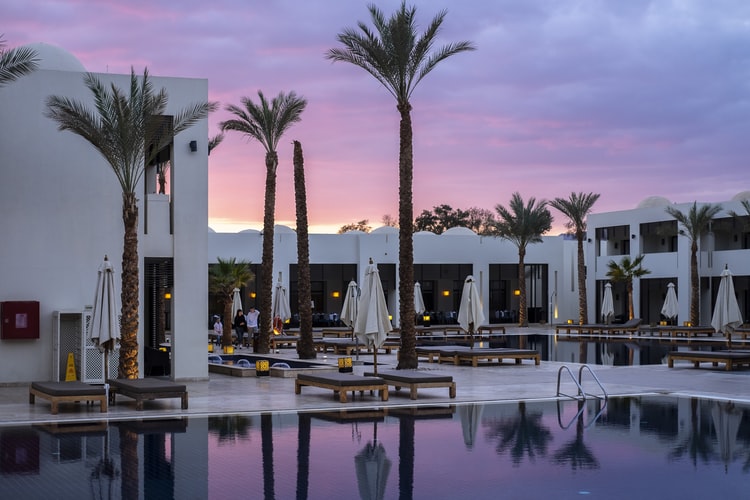Canada News
SARS didn’t prepare the hospitality industry for the prolonged impact of COVID-19

Hotels, as places of refuge, pleasure, business and also contagion, are important places to explore how the tourism sector pilots its way through pandemics. (File photo: @bugaiova_valeriya/Unsplash)
A virulent virus, worried travellers and a tourism sector on the brink. Sounds like 2020? In fact, this was the experience in a few global cities in 2002 and 2003.
Toronto was one of them. The city’s battle against a deadly virus — and the struggle for the rehabilitation of its damaged tourism sector — offers lessons for cities wondering how they will navigate a post-COVID world. And even plan for the next crisis, whenever it arrives.
Hotels, as places of refuge, pleasure, business and also contagion, are important places to explore how the tourism sector pilots its way through pandemics. The experience with SARS offers sobering lessons for Toronto and urban tourist destinations globally.
Similar impacts of SARS and COVID-19
How are the tourism crises of 2002-03 and today similar, and how do they differ? Both public health crisis resulted in sudden, dramatic declines in hotel occupancy. However, while all travel came to a sudden stop globally in 2020, the 2002-03 events centred on a few cities, with Toronto, Singapore and Hong Kong under the microscope.
Hotel occupancy rates in these cities recorded steep declines, as travellers headed elsewhere, businesses suspended events and worried airlines and public health authorities explored protocols such as the now-ubiquitous face masks.
The collapse in travel in winter 2020 occurred at a point when the overall economy and the travel sector were in robust shape and recording record profits. In 2002-03, circumstances were very different. Global travel had slowed due to the Iraq War. Increasing documentation requirements and lingering concerns over security after 9/11 reduced cross-border traffic between Canada and the United States.
Toronto hotels and SARS
The arrival of SARS dealt a body blow to Canada’s largest city.
Both SARS and COVID-19 have had a severe impact on tourism and travel. Hotels are barometers of Toronto’s economic condition, and reveal the unequal impacts pandemics have on employment. Marginally employed people — immigrants and low-income workers — are over-represented among hotel workers. They lose their jobs quickly in the face of reduced demand.
Seasonal employment prospects also dim in the face of disruption. As in summer 2020, student summer employment was impacted in 2003, especially as Toronto entered the crucial summer months back, briefly, on the World Health Organization’s SARS travel advisory. The blow dealt to the tourism sector locally was hard but, as it turned out, by no means fatal.
Toronto’s experience with SARS suggests that once a place appears safe, reassured travellers return — with some coaxing and a lot of co-ordinated planning. In late spring 2003, Toronto businesses developed a co-ordinated response to recovery. Travel packages that included accommodation, restaurant reservations, sporting events and theatre tickets began to lure tourists back. This promotion was accompanied by an aggressive and co-ordinated roll-back of gasoline prices.
After SARS, a celebration
The SARS crisis also led to the creation of a body for the tourism and hospitality sector, chaired by Tourism Toronto, which aimed to restore the city’s reputation. Local and provincial governments committed funds for advertising to reassure prospective tourists that Toronto was safe. The federal government also announced additional funds to promote Canada as a destination in international markets.
The most famous part of the reputation rehabilitation strategy was the hosting of the July 30, 2003, SARS benefit concert. Several hundred thousand fans cheered a lineup of world-famous musicians, headlined by the Rolling Stones. The results of that mega-event are hard to measure in terms of impact, despite the large and enthusiastic crowds that it drew. Such an event is unimaginable today, with the timeline for the COVID-19’s defeat far off, and the certainty that doubts will linger about the wisdom of such boisterous, large-scale assemblies for a long time to come.
In 2003, good news for the tourism sector arrived quickly. In fact, by late 2004, hotels were recording pre-SARS occupancy levels. It seemed as if the sector had dodged a bullet. But it had also dodged a critical opportunity to reflect on how new technologies and standards might reduce the impact of a future pandemic. And this is perhaps where the comparison proves most illuminating.
After COVID-19?
The hotel sector faces dramatically different conditions today. It is in the midst of a global pandemic affecting all sectors of the economy. SARS resulted in far fewer deaths, over a shorter period of time, in a small number of major cities.
While the story of hotels’ recovery is inspiring, the pace was so fast that few paused to ask is larger lessons would be learned: What vulnerabilities might have been disguised in the rush to restore Toronto’s dynamic tourism sector? How could new technologies, systematic contingency planning and early detection systems might have become integrated into hotel management post-2003?
The greatest lesson of SARS may be how, amid the excited focus on recovery and a return to normalcy, so little thought was given to structurally prepare for the prospect of future crises. We need to keep these lessons in mind as we plan our emergence from COVID-19, and the resumption of travel.![]()
Kevin James, Professor, History, University of Guelph; Jose Gabriel Alonzo, Masters student, History, University of Guelph, and Mark Holmes, Assistant Professor, Business and Economics, University of Guelph
This article is republished from The Conversation under a Creative Commons license. Read the original article.





















